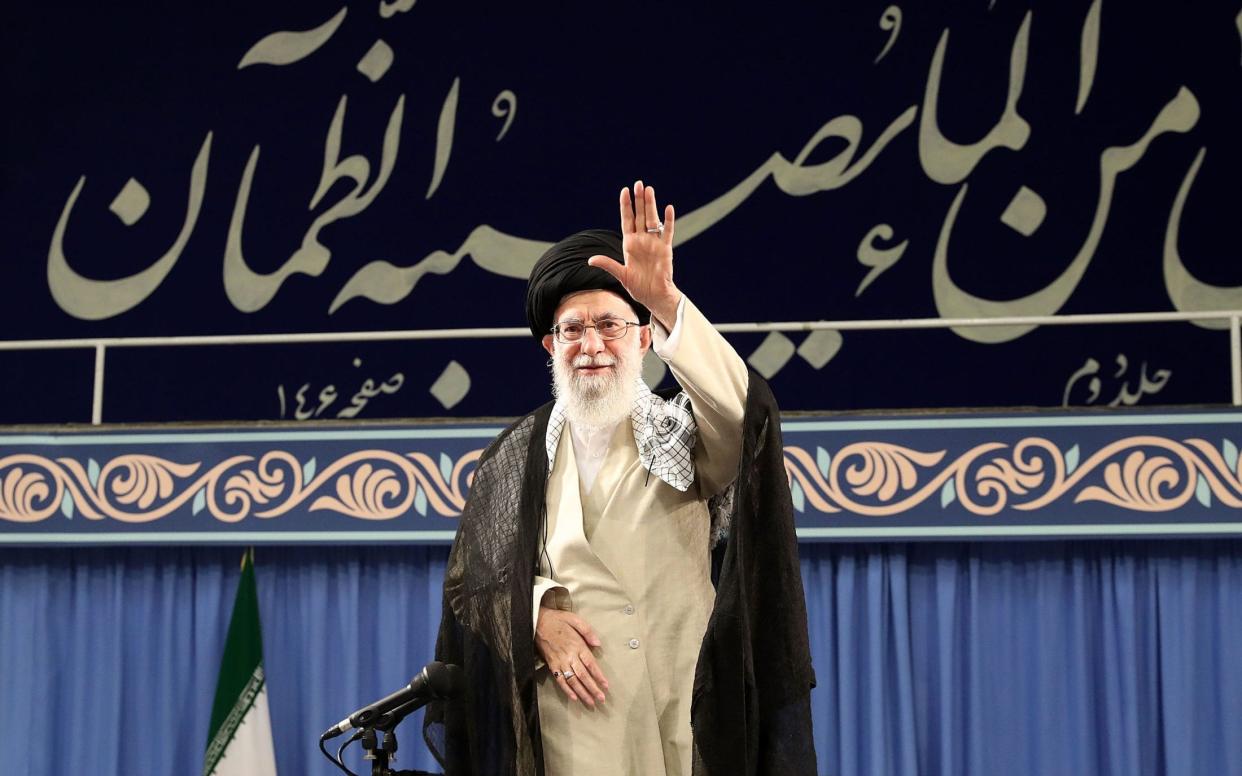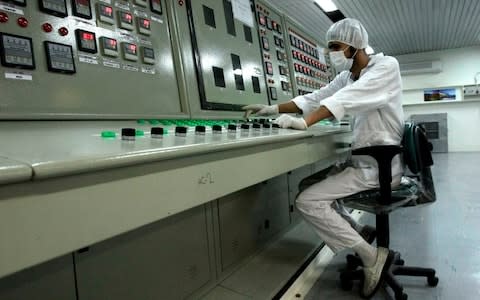UN confirms that Iran has breached 2015 nuclear agreement

Iran has carried out its threat to breach the nuclear 2015 deal by exceeding limits on its enriched uranium stockpile, a move that brings the frayed international agreement a step closer to collapse.
A year after the US pulled out of the deal, Javad Zarif, Iran’s foreign minister, said his country had deliberately exceeded a 300kg cap on its enriched uranium stockpile. "Iran has crossed the 300kg limit based on its plan,"Mr Zarif said.
The International Atomic Energy Agency (IAEA), the UN nuclear watchdog, confirmed on Monday afternoon that Iran had exceeded the 300kg level.
Donald Trump, the US president, said about the news from Iran: "They know what they're doing, they know what they're playing with. I think they're playing with fire."
Iran’s government announced last month that it would start breaching parts of the deal in protest at US sanctions on Iran’s economy and Europe’s lack of action to ease the impact of the sanctions.
While exceeding the limit on low-grade uranium is only a minor step towards a potential nuclear weapon, Tehran has threatened a more serious breach on July 8 by resuming enrichment of higher-grade uranium.

Iran’s policy of increasingly serious breaches presents Britain, France, and Germany - the European states who have defended the nuclear agreement - with a stark choice.
They can reimpose sanctions on Tehran, and risk destroying the nuclear deal altogether, or hold off on sanctions and try to convince Iran to reverse course and come back into compliance with agreement.
Jeremy Hunt, the foreign secretary, said he was “deeply worried by Iran’s announcement that it has broken existing nuclear deal obligations” but that the UK remained committed to the deal.
“I urge Iran to avoid any further steps away from [the nuclear deal] and come back into compliance.”
The US pulled out of the nuclear agreement in 2018 and European diplomats now fear that Iran is on course to crash out, effectively killing the deal and potentially increasing the chances of war.
Iran said on Monday that it was prepared to go back to complying with the deal if the European powers can deliver the economic benefits that Tehran was promised during the 2015 nuclear negotiations.
Deeply worried by Iran’s announcement that it has broken existing nuclear deal obligations. UK remains committed to making deal work & using all diplomatic tools to deescalate regional tensions. I urge Iran to avoid any further steps away from JCPoA & come back into compliance.
— Jeremy Hunt (@Jeremy_Hunt) July 1, 2019
But the European states have so far struggled to find ways to convince Iran to stay in the agreement.
Their main effort has been focused on a financial mechanism known as Instex, which is designed to circumvent US sanctions and allow European firms to trade with Iran.
The mechanism became operational this week but there is so far little sign that it will succeed in providing the kind of broad economic relief that Tehran is demanding.
On Monday night an EU spokeswoman said the body was fully committed to the agreement and urged Iran to reverse this step and refrain from further measures that undermine the deal.
"Continued full implementation of the JCPOA by all sides is crucial for the sustainability of the agreement. The EU remains fully committed to the agreement as long as Iran continues to fully implement its nuclear commitments," she said.
Eric Brewer, deputy director of the Centre for Strategic and International Studies think tank’s project on Iran’s nuclear activity, said the Iranian move was designed to increase pressure on the European states to act.
“The chances of Europe or other countries taking the type of steps Iran is asking for are slim. So Iran will have some big decisions to make about how far it’s willing to take its nuclear escalation,” he said.
“Decisions in the coming weeks will be hugely important to determining whether we’re on a path to further escalation, or whether it’s possible to seize an off ramp.”
Iran promised as part of the 2015 nuclear agreement that it would not store more than 300kg of uranium enriched to the low level of 3.6 per cent fissile material.
Iran has warned it will carry out a more serious breach of the agreement on July 8 when it will resume enriching the kind of high-grade uranium that could eventually be used for a nuclear weapon.
In a rare public appearance, Yossi Cohen, the Israeli spy chief said “the world must now allow” Iran to stockpile high-level enriched uranium.
“Just imagine what will happen if the material stockpiled by the Iranians becomes fissionable, at military-enrichment grade, and then an actual bomb. The Middle East, and then the entire world, will be a different place,” he said.
Israel came close to bombing Iran’s nuclear facilities in 2011 but held off partly because of Barack Obama’s opposition to military action against Iran.
Mr Trump has taken a tougher line against Iran and has been more supportive of Israeli military action. However, he has said several times that he is reluctant to engage in a war with Iran and hopes to one day resume negotiations.
Iran has said it will not negotiate with the US under the pressure of sanctions.

